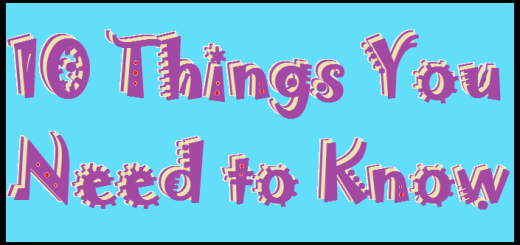Ten Things You Need to Know About: Reading and Reviewing Poetry
Ten Things You Need to Know About: Reading and Reviewing Poetry
There’s a common belief that only intellectuals and poets can review poetry, but the truth is anyone
1. Start by reading the poem all the way through
It’s difficult to know what a poem’s about until you’ve read all of it so read the whole poem first and see how it makes you feel and which ideas or pieces of imagery really stand out. Sometimes this will be because it’s a good idea, but it may also be because it doesn’t fit with the rest of the poem and you have to decide which it is.
2. It’s not the ideas that matter, it’s how you use them
Fresh and original ideas are like gold dust, especially in this age where the moment something new is shared with the world, it is copied and parodied across the internet. And if rare ideas are goldust, then common ideas are lead and no matter how intricately or elegantly you mould the lead, it can never be gold, right?
Except poems are not about being pretty. They are about being interesting and I’ll take a lead thunderstorm over a golden ring any day. The truest craft of poetry is being able to bring fresh meaning to ideas and themes which have been used before, or combining two which wouldn’t normally be matched. An example from the world of film is ‘Warm Bodies’, the zombie rom com which nobody saw coming.
3. Even abstract poems need imagery
The best poetry will try to tap into all five senses and the first of those is sight. It should give the reader images to grab onto, especially when describing abstract ideas so the reader feels they can follow along. For example, Dickinson’s poetry about depression describes ‘There’s a certain Slant of light,/ Winter Afternoons –/ That oppresses, like the Heft/ Of Cathedral Tunes –’ She captures the emotion perfectly and doesn’t have to tell us ‘this is what depression feels like’ because we can see it and hear it through her words.
4. Is the poem missing something?
We’ve already covered sight/imagery but what about the other four senses and how many should a poem contain?
Sound translates to rhythm but also the sound of words, the alliteration and onomatopoeia. The assonance and repetition. You don’t have to know these terms to be able to say if a poem has a certain sound, perhaps the use of words beginning with s lend it a sinister tone, or the abundance of brash, booming blows make it feel action packed. Sound is a must in poetry.
Then there’s touch which can be the physical sense of touching or the emotional side. A poem should give us a level of sensation, whether it’s a feeling of being in the speaker’s shoes, or the description of soft violins and hard mirrors.
Smell and taste are less important in poetry but can help add to the atmosphere and give the reader something solid to hold on to.
5. Does the poem have a purpose and does it achieve this?
Poetry is about sharing something with the reader and it should have an impact on them, whether that’s to entertain, educate or entreat. Does the poem make you laugh or does it make you question the way you think about the world? If the poem has no impact on you then the writer needs to know this and you should remind them that a poem needs to give something to the reader or take something away.
6. Is there an audience for this poem? Are you that audience?
It’s helpful to ask the question of who this poem appears to be aimed at and whether that’s you. If not, that doesn’t mean you can’t still review it but it helps if you tell the reader that you’re not a teenage girl and never have been so you’re probably not getting the most out of a poem about their first period. But also, does the poem exclude its own audience or limit itself too far – is it a poem about a gardener who likes line dancing? This should be considered alongside the purpose because a poem about a gardener who likes line dancing which aims to entertain will have a much wider audience than a poem about a gardener who likes line dancing which is serious and aims to entreat its readers into becoming line dancing gardeners as well.
7. Does the poem flow?
If there are words or phrases which you stumble over and have to read again, you should point these out because they’re breaking the flow of the poem.
8. Does the poem leave you with questions and do you care about what the answers might be?
If you’re left with questions and you don’t care, that’s bad. If you’re left with questions and you do care about what the answers may be then it could be good if there are few and they are clear questions or bad if there are many and they leave you with a sense of frustration or a lack of clarity.
9. Are the start and end lines solid?
These are key parts of the poem and the first should capture your attention while the last should end on a strong thought or image.
10. What don’t you understand?
Don’t be afraid to admit that there are things you don’t understand and to tell the writer. Most times this is going to be either because you’re not the right audience for the poem or because they’ve done something wrong and their meaning isn’t coming across clearly enough.










This is cool! 🙂 And very true.